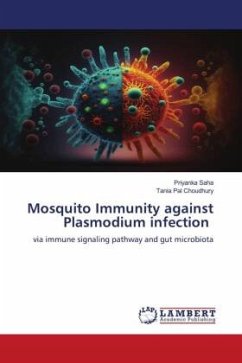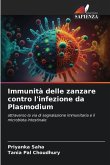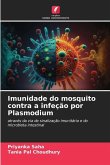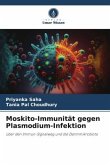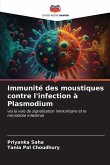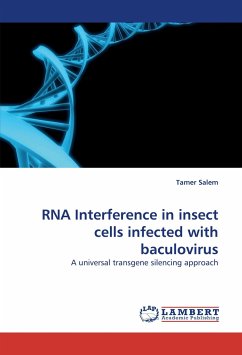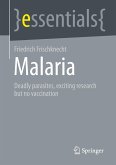The causative agent of malaria, that is Plasmodium undergoes complex development and transition to withstand mosquito innate immunity for its transmission from mosquito to human via vectors. Plasmodium sporozoites colonize in mosquito salivary glands, migrate through the sky, penetrates into blood vessels, breach in liver, sinusoid and invade hepatocytes. Malaria-transmitting mosquitoes are continuously in contact to mosquito midgut microbiota. The mosquito gut microbiota influences the outcome of pathogen infection but the mechanism by which symbiotic bacteria affect vector competence is unknown. Gut microbiota Serratia Y1 renders mosquito resistant to Plasmodium berghei infection as it activates the mosquito immune system. In total, the mosquito's immune signaling pathway and the gut microbiota plays an essential role in modulating the mosquito's capacity to sustain Plasmodium infection. This study enhances the role of mosquito's innate immune signaling pathways in preventing infection by the Plasmodium parasite, the role of gut microbiota in mosquito Plasmodium interaction and the crucial parasite and vector molecules that mediate midgut infection.
Bitte wählen Sie Ihr Anliegen aus.
Rechnungen
Retourenschein anfordern
Bestellstatus
Storno

